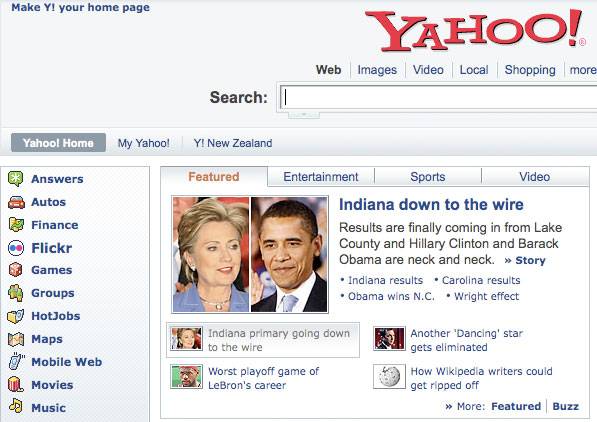Yahoo! Buzz, the social news service that launched in February and delivered giant piles of traffic to the lucky few websites that were indexed by the site, is tonight opening up to submissions from any site across the web. We warned that Buzz could eat Digg’s lunch and that’s never felt as true as it does tonight. The roll out of new open functionality will extend throughout the evening.

All the excitement aside, the most logical question to ask is this: will links that get rewarded by prominent placement on Buzz or even on the Yahoo.com front page be selected democratically by the votes of Buzz users? We don’t think there’s any reason to believe they will.
The Early Buzz About Buzz
When Yahoo! launched Buzz, guest author Muhammad Saleem wrote one of the only positive reviews of the service here at RWW. He called it brilliant and predicted that Buzz and other similar sites could co-exist peacefully. Admittedly, that was before it opened up to all comers.
A month later Richard MacManus wrote here that Buzz was big and spelled trouble for Digg.
In May RWW hit the front page of Yahoo! via Buzz for the first time and saw substantial traffic and a whole lot of comments, despite making an appearance at an obscure hour. The post that hit Yahoo! was by Sarah Perez, about Wikipedia going to print.

One week later, traffic analysts ComScore reported that Buzz already had more traffic than Digg.
It’s all good news for Buzz and the sites that get on it, right?
Questions Arise
Are stories making the jump from Buzz to Yahoo.com based on the number of votes they receive? There’s no indication of that and you can’t blame Yahoo! for exercising some editorial control in defense of its brand. The story of Buzz may in fact be that user voted news sites are most viable when they operate as a hybrid of voting and editorial. Just what the criteria are remains a mystery, though.
The second question that has to be about the ad sharing agreement that Yahoo! required users to join as a part of being added to Buzz. Yahoo! told selected publishers that they had to be a part of the Yahoo! Publishers Network instead of AdSense. That didn’t seem very realistic at the time and presumably the requirement goes out the window now. Or does it? Editorial and advertising weren’t separated in the first iteration of Buzz – how separate will they be now?
Buzz is big news, it represents a big shift in the media landscape. Inevitably there will be questions of transparency, etc. that have to be dealt with. We hope they can be dealt with well so that Buzz can be a strong entrant into a new web of collaborative discovery.

















